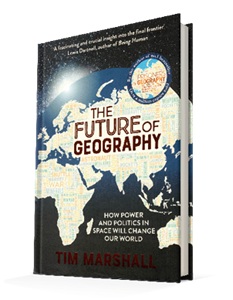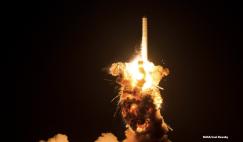This doesn’t look like a space book, but it just goes to show that you can’t always judge a book by its cover. According to the blurb, it is “essential reading on power, politics and the future of humanity” by “a leading authority on foreign affairs”. In essence, it’s a story of astropolitics and the rivalry between the major space powers in an era of increasing space commercialisation.
Building on the theme embodied in the title, the author suggests that to understand the story of space, it is “helpful to see space as a place with geography: it has corridors suited to travel, regions with key natural assets, land on which to build and dangerous hazards to avoid”. After the obligatory potted history, the book gets down to space applications, space law and what the author terms “outlaws” (you can fill in the names…).
In some ways, the book is like any other book on space by an outside observer: it coins phrases like “the new Space Race” as if they are new and makes sure to mention Elon Musk by the second page. On the other hand, it’s always good to have the view of an outsider, especially an intelligent observer, because it brings perspective and sometimes confirmation (which can be comforting). With a good writer, you also get some fancy wordplay like the opening sentence of the Outlaws chapter: “Between the third rock and the sun is a hard place”.
Arguably, the most interesting part of the book is the analysis of China’s space goals and achievements which, in my view, should feature large in any commentary on current developments. Marshall makes the startlingly obvious point (once you realise it) that “China is already the only country operating its own space station… in astropolitical terms, having the only sovereign station is quite a statement”. Ultimately, he thinks that cooperation between China and the USA is “possible” and hopes for the exploration of “bilateral avenues of mutual benefit”. Here’s to that!











